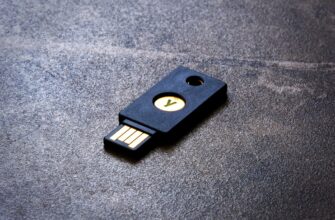🔐 USDT Mixer — Total Privacy for Your Crypto
Experience fast and secure USDT TRC20 mixing. 🌀
No accounts. No records. Just full anonymity, 24/7. ✅
Service fees start at only 0.5%.
Why Private Key Security Can’t Be Ignored
Your private key is the ultimate gatekeeper to your cryptocurrency, digital identity, and sensitive data. Unlike passwords, private keys can’t be reset if compromised – a single breach could mean irreversible loss. With hackers deploying increasingly sophisticated attacks, protecting these cryptographic keys is non-negotiable. The good news? Robust security doesn’t require a fortune. This guide reveals practical, budget-friendly methods to shield your private keys from cybercriminals without draining your wallet.
How Hackers Target Private Keys (And How to Thwart Them)
Understanding attack vectors is your first defense. Common low-cost hacking methods include:
- Phishing Scams: Fake emails/sites tricking you into entering keys
- Malware & Keyloggers: Software capturing keystrokes or screen data
- Public Wi-Fi Snooping: Unsecured networks allowing data interception
- Physical Theft: Accessing unprotected devices or paper backups
Counter these by never typing keys on shared devices, using antivirus software (like free Avast or Bitdefender), and avoiding public networks for crypto transactions.
7 Low-Cost Private Key Protection Strategies
- Paper Wallets (Cost: $0-$5)
Generate keys offline using open-source tools like BitAddress, print on acid-free paper, and store in waterproof containers. Ideal for long-term “cold storage.” - Hardware Signing Devices (Cost: $10-$50)
Repurpose old smartphones or Raspberry Pi as air-gapped signing devices. Install open-source wallet software, disable all connectivity, and only use for offline transaction signing. - Encrypted USB Drives (Cost: $8-$20)
Store keys on USB drives encrypted with VeraCrypt (free). Use complex passphrases and keep physically secure. Never leave plugged in. - Password Manager Vaults (Cost: $0-$40/year)
Use KeePass (free) or Bitwarden ($10/year) with 2FA enabled. Store encrypted key backups – never the primary copy. - Multi-Signature Wallets (Cost: Gas fees only)
Require 2-3 approvals for transactions using free tools like Gnosis Safe. Distribute key fragments across devices. - Steganography Techniques (Cost: $0)
Hide keys within innocent-looking files (e.g., photos) using free tools like OpenStego. Provides “security through obscurity” as supplementary protection. - Manual Sharding (Cost: $0)
Split keys into 3-5 parts using the Shamir method. Store fragments in geographically separate locations (e.g., home safe, trusted relative).
Critical Habits for Ongoing Protection
- Never screenshot or email private keys
- Verify all wallet addresses before transactions
- Update software monthly to patch vulnerabilities
- Use separate devices for daily browsing and crypto activities
- Regularly test backup recovery processes
Budget Security Tools Comparison
| Tool | Cost | Protection Level | Best For |
|---|---|---|---|
| Paper Wallet | Free | High (offline) | Long-term storage |
| Encrypted USB | $8-$20 | Medium-High | Portable backups |
| KeePass | Free | Medium | Encrypted digital copies |
| Air-Gapped Phone | $10-$50 | High | Active trading |
FAQs: Guarding Private Keys on a Budget
Q: Are free password managers safe for private keys?
A: Reputable open-source managers like KeePass with strong master passwords and 2FA are reasonably secure for encrypted backups, but never store your only copy there.
Q: Can I use a regular USB drive without encryption?
A: Absolutely not. Unencrypted USBs are high-risk targets. Always use VeraCrypt or similar free encryption with 20+ character passphrases.
Q: How often should I check paper wallet backups?
A: Inspect physical backups every 6 months for environmental damage. Test recovery annually using small transactions.
Q: Is multi-sig really low-cost?
A: Yes – setup requires minimal gas fees. Ongoing costs are negligible compared to potential losses from hacks.
Final Thoughts
Protecting private keys demands vigilance, not vast resources. By combining offline storage, encryption, and behavioral discipline, you can create hacker-resistant security for less than $50. Remember: The cheapest solution is avoiding catastrophic loss. Implement even 2-3 strategies today to sleep easier knowing your digital assets stay yours.
🔐 USDT Mixer — Total Privacy for Your Crypto
Experience fast and secure USDT TRC20 mixing. 🌀
No accounts. No records. Just full anonymity, 24/7. ✅
Service fees start at only 0.5%.








